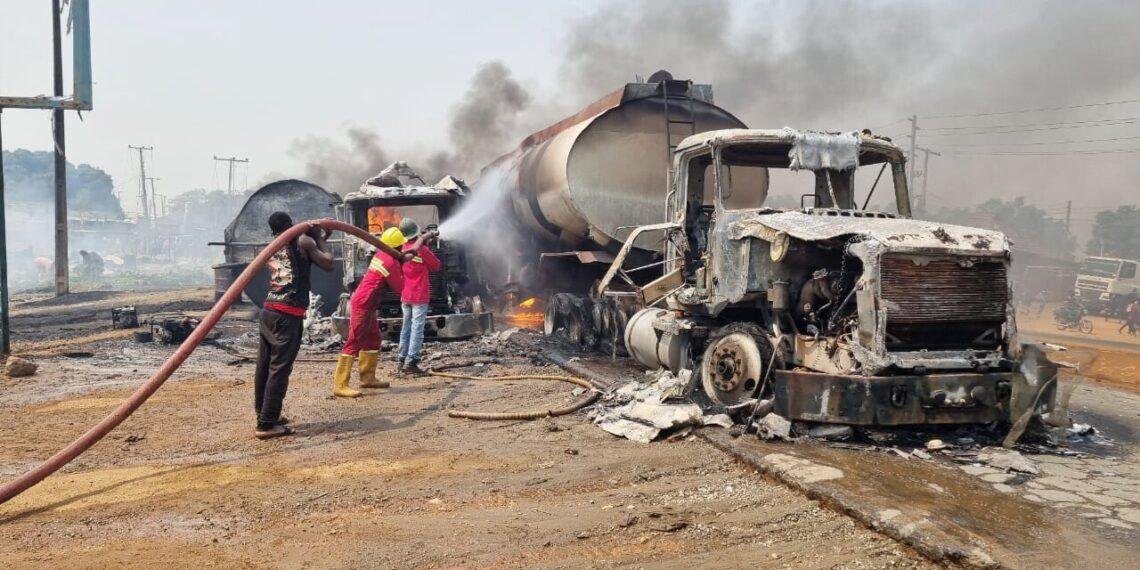Nigeria is facing a catastrophic wave of fuel tanker explosions that have claimed over 250 lives in less than two months, leaving countless victims with severe burn injuries. These horrifying incidents, which have rocked multiple states, raise urgent concerns about fuel transportation safety and the government’s failure to enforce stricter regulations.
The first tragedy struck on January 5 in Agbor, Delta State, when a fuel tanker overturned and exploded, engulfing bystanders and vehicles in flames. Just four days later, on January 9, another deadly explosion hit Ankpa, Kogi State, killing at least 50 people.
The worst disaster occurred on January 18 at Dikko Junction, a major link between Abuja and Kaduna, where over 100 lives were lost in a fiery inferno. By January 22, another explosion in Ibadan claimed a life, while on January 28, five bodies were recovered from a fire explosion at the Matrix Tank Farm in Ifiekporo, Delta State, where victims were trapped in a desperate bid to escape.
Read Also: Tanker explosion claims Driver’s life, injures one in Ibadan
The frequency and devastating impact of these explosions have left Nigerians outraged, with many demanding immediate government action. Experts warn that without proper fuel transportation safety measures, the country remains at risk of more deadly disasters.
To curb these frequent disasters, experts are advocating for the **revival of railway To curb these frequent disasters, experts are advocating for the revival of railway transportation for petroleum products. Countries with advanced safety measures rely on railways to transport hazardous materials, significantly reducing road accidents. Nigeria’s rail network, if properly upgraded and managed, could serve as a safer alternative to tanker trucks, minimizing the risks posed by reckless driving, road congestion, and poorly maintained vehicles. Investing in rail infrastructure for fuel transportation would not only enhance safety but also improve efficiency, ensuring petroleum products reach their destinations without endangering lives.
Authorities must enforce strict regulations on fuel tankers, including rigorous vehicle inspections and banning their movement during peak traffic hours. Additionally, substance abuse tests for drivers, increased public awareness on fuel-related dangers, and stronger security protocols for tankers are essential to preventing more senseless deaths.
As families grieve and survivors battle life-threatening injuries, Nigerians are left asking: How many more lives must be lost before the government takes action?






